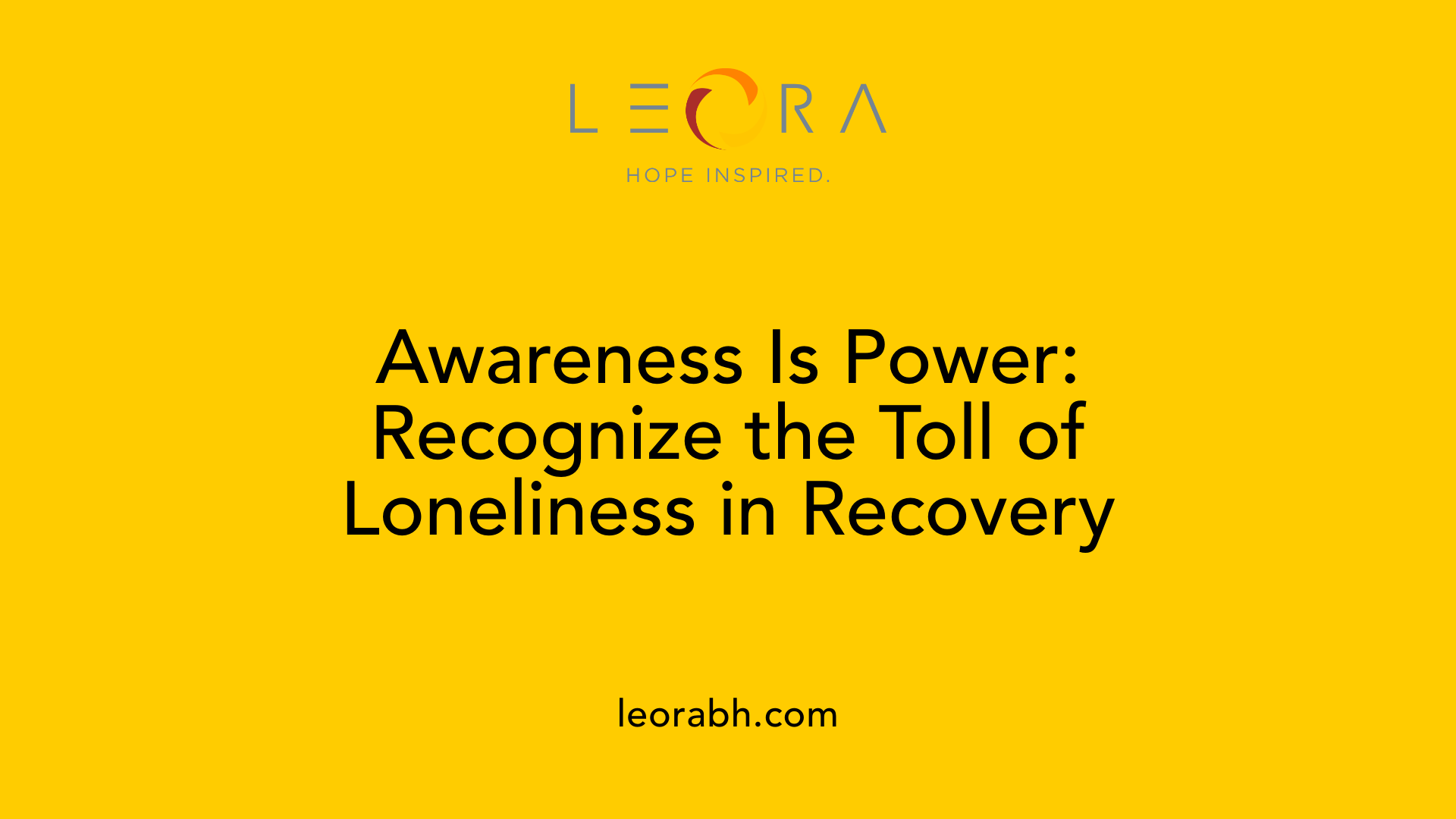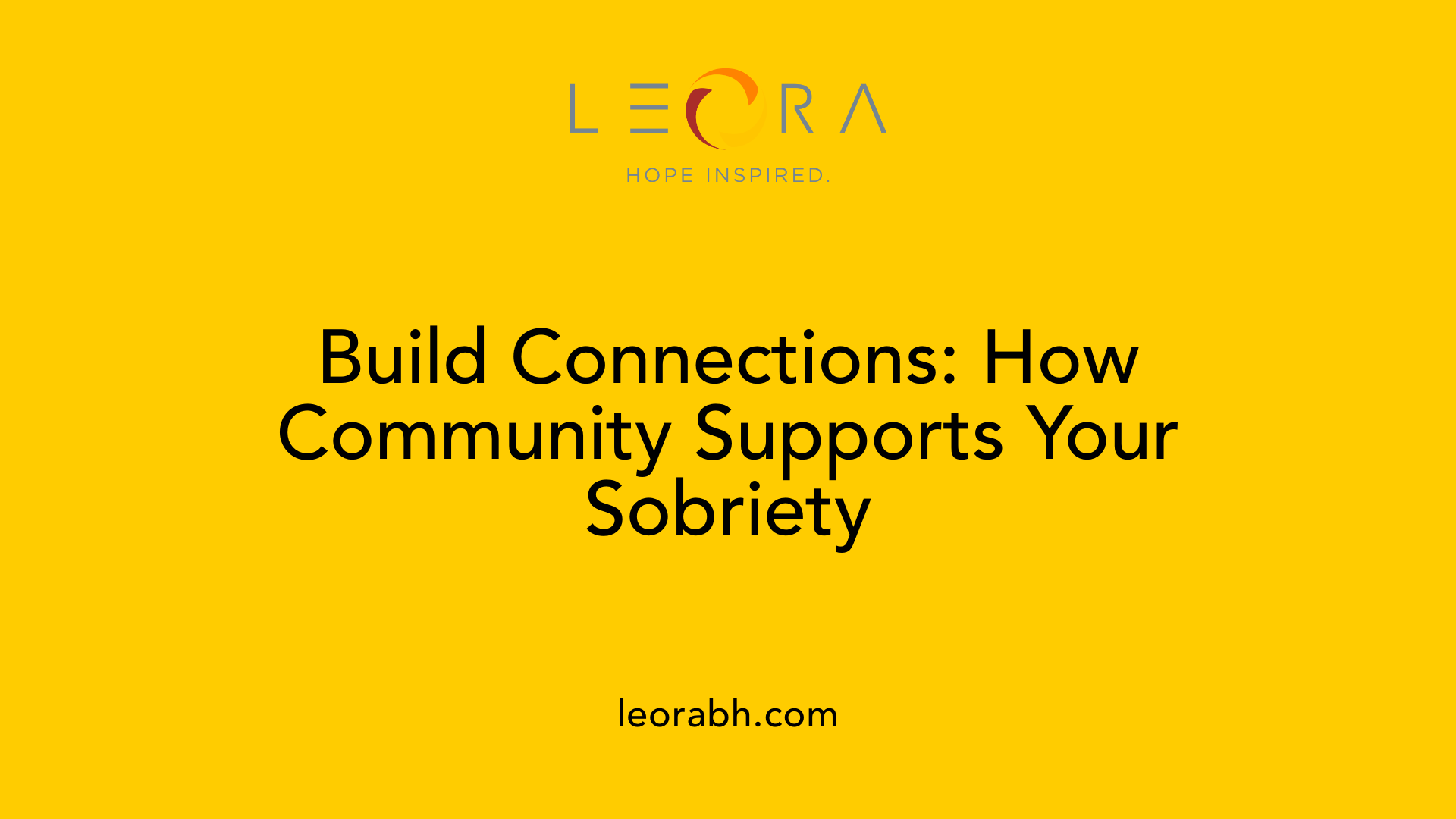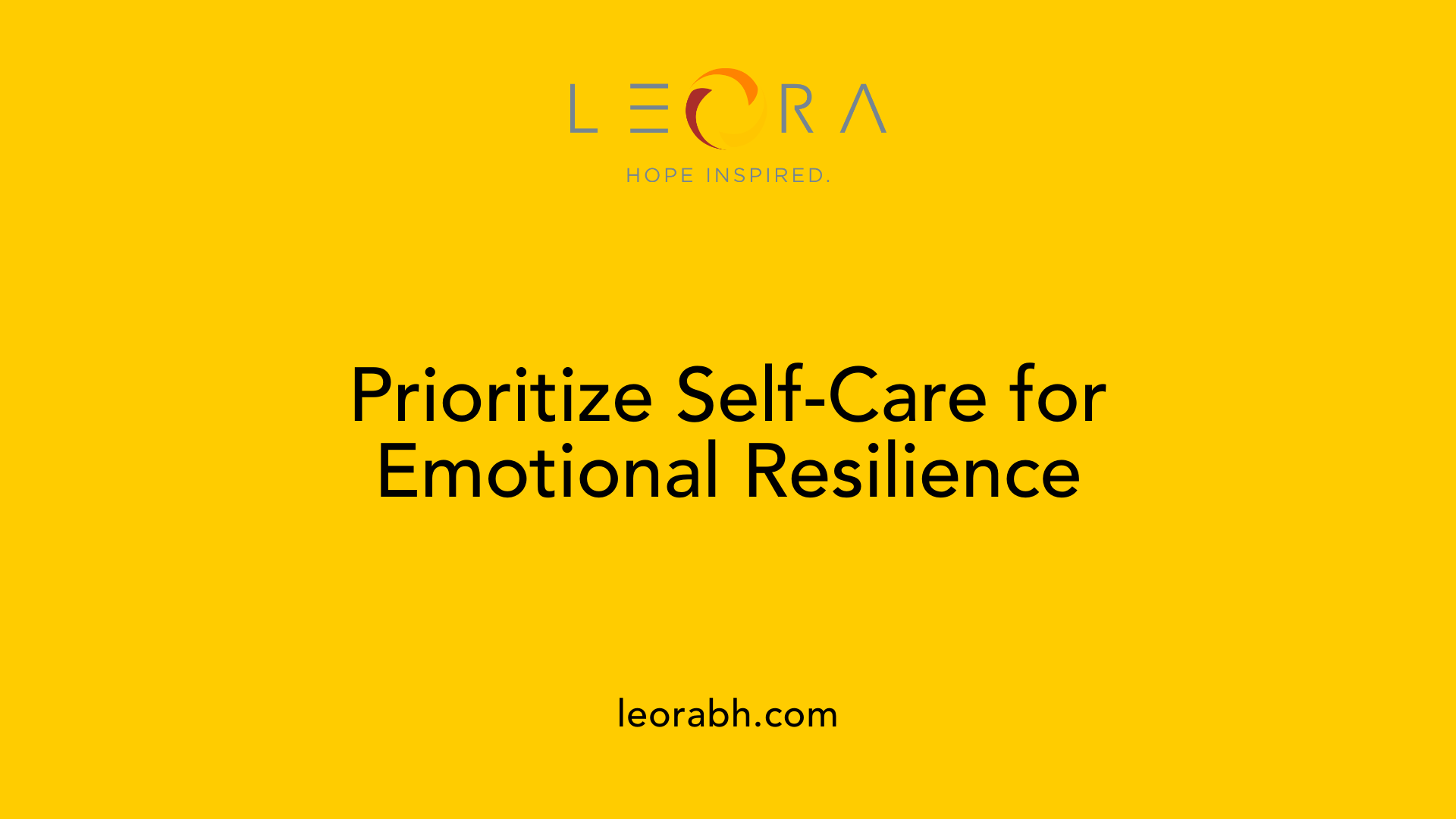How to cope with loneliness during sobriety
Breaking Barriers: Facing Loneliness in Sobriety with Confidence
Understanding Loneliness and Its Impact on Recovery
Loneliness is a pervasive experience among those in addiction recovery, often intensifying feelings of isolation, depression, and anxiety. Recognizing the psychological and emotional aspects of loneliness is essential for developing effective coping strategies. In recovery, feelings of disconnection may stem from the loss of old social circles, lifestyle changes, and internal emotional struggles. These feelings not only pose challenges to mental health but can also increase the risk of relapse if not addressed properly.
Recognizing and Normalizing Loneliness as Part of Recovery

What is loneliness and how does it differ from simply being alone?
Loneliness is a feeling of being disconnected or isolated from others, even when surrounded by people. It is a subjective emotional experience where one perceives a lack of meaningful social connection. Unlike being alone, which can be a chosen, peaceful state for reflection or self-care, loneliness involves feelings of sadness or longing for companionship. In recovery, understanding this distinction helps individuals recognize that feeling lonely is normal and does not mean they are truly alone.
Is loneliness a common experience during the journey of recovery?
Yes, loneliness is a widespread and normal part of the recovery process. Many people experience it after leaving inpatient treatment or when altering their social environments. Losing contact with old friends who used substances, or feeling misunderstood by loved ones, can intensify these feelings. Recognizing loneliness as a typical part of recovery reduces shame and helps individuals accept their emotions without judgment.
How does loneliness impact mental health during recovery?
Loneliness can have profound psychological effects. It often leads to negative self-talk, diminished self-esteem, and feelings of guilt or shame. Extended feelings of isolation are associated with depression, anxiety, and suicidal thoughts. Moreover, loneliness can trigger emotional vulnerabilities, increasing the risk of relapse as individuals may seek relief through substances. Managing these emotional states is essential for sustaining sobriety.
| Aspect | Impact of Loneliness | Additional Notes |
|---|---|---|
| Self-esteem | Low self-worth | Feeling lonely can diminish confidence. |
| Emotional well-being | Depression, anxiety | Loneliness exacerbates mental health issues. |
| Physical health | Increased pain, poor sleep | Stress from loneliness affects body health. |
| Relapse risk | Higher risk | Emotional vulnerabilities may lead to relapse. |
Strategies that help in normalizing and coping with loneliness
To deal effectively with loneliness, it is helpful to acknowledge these feelings as normal and part of the healing process. Engaging in hobbies, volunteer work, or activities like exercise can improve mood and create opportunities for social connections.
Joining support groups such as Alcoholics Anonymous or Narcotics Anonymous fosters a sense of belonging and understanding.
Rebuilding relationships with family and friends, making amends when possible, and practicing kindness can restore bonds and reduce feelings of isolation.
Practicing self-care through journaling, meditation, and mindfulness enhances emotional resilience. It is also beneficial to seek professional help to work through complex feelings of loneliness or depression.
Remember, feeling lonely does not mean you are alone. With patience, self-compassion, and proactive engagement, overcoming loneliness becomes a manageable part of recovery.
The Psychological Toll of Loneliness in Recovery

How loneliness can lead to negative self-talk and relapse
Loneliness in early recovery can significantly impact an individual's mental state. When feeling isolated, many people begin to engage in negative self-talk, blaming themselves or questioning their worth. This internal dialogue can weaken self-esteem and foster feelings of doubt about their ability to stay sober.
Such negative thoughts often contribute to emotional distress and may increase the risk of relapse. When loneliness persists, it can create a cycle where negative emotions surpass resilience, making it harder to maintain the motivation needed for recovery. Recognizing these feelings and actively working to counteract them with positive affirmations and support is essential.
Effects of loneliness on mental health, including depression, anxiety, and low self-esteem
Research shows that chronic loneliness is associated with a range of mental health challenges. Individuals experiencing high levels of loneliness often face depression, marked by feelings of sadness, hopelessness, and a lack of motivation.
Anxiety can also be heightened by social isolation, leading to nervousness in social situations and a persistent worry about rejection or judgment. Additionally, loneliness tends to lower self-esteem, making individuals feel unworthy or unlovable. These emotional states can significantly hinder recovery, creating barriers to forming new relationships or engaging in supportive activities.
The importance of acknowledging emotions and practicing self-compassion
Accepting feelings of loneliness as a normal part of recovery is crucial. Instead of denying or suppressing these emotions, acknowledging them helps individuals process their experiences and reduces internal conflict.
Practicing self-compassion involves being gentle with oneself, forgiving past mistakes, and understanding that healing takes time. Techniques such as mindfulness, meditation, and journaling can help build this self-awareness. By treating oneself with kindness and patience, individuals create a solid emotional foundation, making it easier to navigate the challenges of loneliness and stay committed to sobriety.
Practical Strategies for Combatting Loneliness
How can I enjoy life while sober?
Finding joy and fulfillment in sobriety involves exploring activities and routines that nourish your mind, body, and spirit. Engaging in hobbies like painting, cooking, or learning new skills can provide purpose and distraction from feelings of loneliness.
Volunteering your time to help others not only contributes to your community but also fosters social bonds and a sense of belonging. Physical activities, especially exercise, are powerful tools to lift mood; they release dopamine and endorphins, which combat feelings of loneliness and improve overall well-being.
Rebuilding or strengthening relationships is vital. Reach out to family members or old friends with honest communication and, if appropriate, make amends. These efforts can restore important social connections and diminish feelings of isolation.
Joining support groups such as Alcoholics Anonymous (AA) or Narcotics Anonymous (NA) can be life-changing. Both in-person and online meetings provide safe spaces to share, learn, and connect with others who understand your journey.
Trying new hobbies or interests—such as art classes, sports, or clubs—can help you meet like-minded people and establish new friendships. Participating in community events or taking classes supports personal growth and creates opportunities for social interaction.
Practicing mindfulness, gratitude, and self-care techniques deepens your connection with yourself and enhances emotional resilience. Meditation, journaling, and gratitude lists help manage challenging feelings and highlight positive experiences.
Building a supportive environment where you invest in meaningful, alcohol-free activities can transform loneliness into a source of strength and personal satisfaction. Over time, these strategies foster a balanced life filled with purpose, connection, and joy, making sobriety a rewarding experience.
The Role of Community and Support Networks in Sobriety

Why are support groups and peer support essential during recovery?
Support groups like Alcoholics Anonymous (AA) and Narcotics Anonymous (NA) provide a vital sense of community for those in recovery. Being part of these groups helps individuals feel less isolated, offering shared experiences, encouragement, and accountability. Peer support fosters understanding and empathy, which can significantly reduce feelings of loneliness that often accompany early sobriety.
How can rebuilding relationships with family and friends aid recovery?
Re-establishing and strengthening bonds with loved ones can create a reliable emotional foundation. Making amends and small acts of kindness help restore trust and connection, even if not always reciprocated immediately. These relationships serve as a protective buffer against loneliness, boosting self-esteem and providing practical support.
In what ways does volunteering and community involvement promote connection?
Participating in community activities, volunteering, or joining clubs can fill time constructively and introduce individuals to new social circles. These activities foster a sense of purpose and belonging, which can alleviate feelings of loneliness. Giving back also encourages self-worth and enhances social skills.
What are the benefits of online and virtual support options?
In today’s digital age, online support communities, virtual meetings, and teletherapy offer accessible avenues to stay connected. They allow flexibility in scheduling and can be particularly helpful when in-person meetings are difficult to attend. Online platforms facilitate continuous peer interaction, reduce isolation, and provide ongoing encouragement during recovery.
| Strategy | Description | Benefits |
|---|---|---|
| Support group participation | Attending AA, NA, or online meetings | Increased sense of community, accountability |
| Rebuilding relationships | Making amends with loved ones | Emotional support, trust rebuilding |
| Volunteering/Community work | Engaging in local events, serving at shelters | Social interaction, purpose, personal growth |
| Virtual support platforms | Online forums, virtual therapy, social media groups | Accessibility, ongoing connection, flexibility |
| Self-care activities | Journaling, hobbies, meditation | Emotional resilience, self-awareness |
Building a strong support network is central to maintaining sobriety. It helps combat feelings of loneliness, encourages emotional stability, and offers practical help through shared experiences. These connections serve as a lifeline when facing challenges, reinforcing the journey toward lasting recovery.
Maintaining Emotional Well-being and Self-Care During Recovery

How do you deal with loneliness in addiction recovery?
Loneliness is a common challenge during addiction recovery. To cope effectively, it is important to focus on building a robust social support network. Engaging in activities such as hobbies, volunteering, or joining support groups like Alcoholics Anonymous or Narcotics Anonymous can help foster meaningful connections with others who understand the journey.
Improving communication within your family and support system is crucial. Practice active listening, set healthy boundaries, and avoid enabling behaviors that might hinder emotional growth. These steps help create a safe environment for sharing feelings and rebuilding trust.
Managing stress through mindfulness, meditation, and regular exercise can significantly reduce feelings of isolation. These practices promote emotional stability and enhance self-awareness, making it easier to handle loneliness.
Seeking professional help is also vital if feelings of loneliness or emotional distress persist. Therapists, counselors, and outpatient programs can provide personalized support, teach coping strategies, and address underlying issues contributing to feelings of disconnect.
In summary, dealing with loneliness involves nurturing relationships, practicing self-care routines, and utilizing professional resources. These approaches help to foster resilience, ensure emotional well-being, and support sustained recovery.
Moving Forward with Confidence and Connection
While loneliness can feel overwhelming during sobriety, it is a manageable and normal part of the recovery journey. By actively rebuilding social connections, engaging in meaningful activities, and practicing self-compassion, individuals can transform feelings of disconnection into opportunities for growth and camaraderie. Remember, overcoming loneliness requires patience, support, and a proactive approach. Building a resilient support network and embracing sober living fully equips you to thrive emotionally, physically, and socially — forging a fulfilling, connected life in sobriety.
References
- Coping with Loneliness in Early Recovery - The Berman Center
- 5 Ways to Combat Loneliness in Your Addiction Recovery
- How to Overcome Loneliness During Addiction Recovery
- How to Manage Loneliness During Recovery
- How Loneliness Can Get In The Way Of Sobriety | Eudaimonia Homes
- 5 Ways To Overcome Loneliness In Addiction Recovery
- Ten Ways to Combat Loneliness in Recovery
- 3 Ways to Combat Feelings of Loneliness in Recovery
- How Do You Cope with Loneliness in Addiction Recovery?
Find Your Inner Light
Related Articles
Schedule an Assessment
Leora Behavioral Health provides comprehensive treatment services, including ambulatory detox, mental health IOP, and SUD IOP, to support your journey toward lasting recovery.
Our caring team will guide you through the admissions process and create a personalized treatment plan tailored to your unique needs. We welcome walk-ins. If you or a loved one is struggling, reach out today. We’re here to help.


.svg)




.svg)
.svg)
.svg)
.svg)
